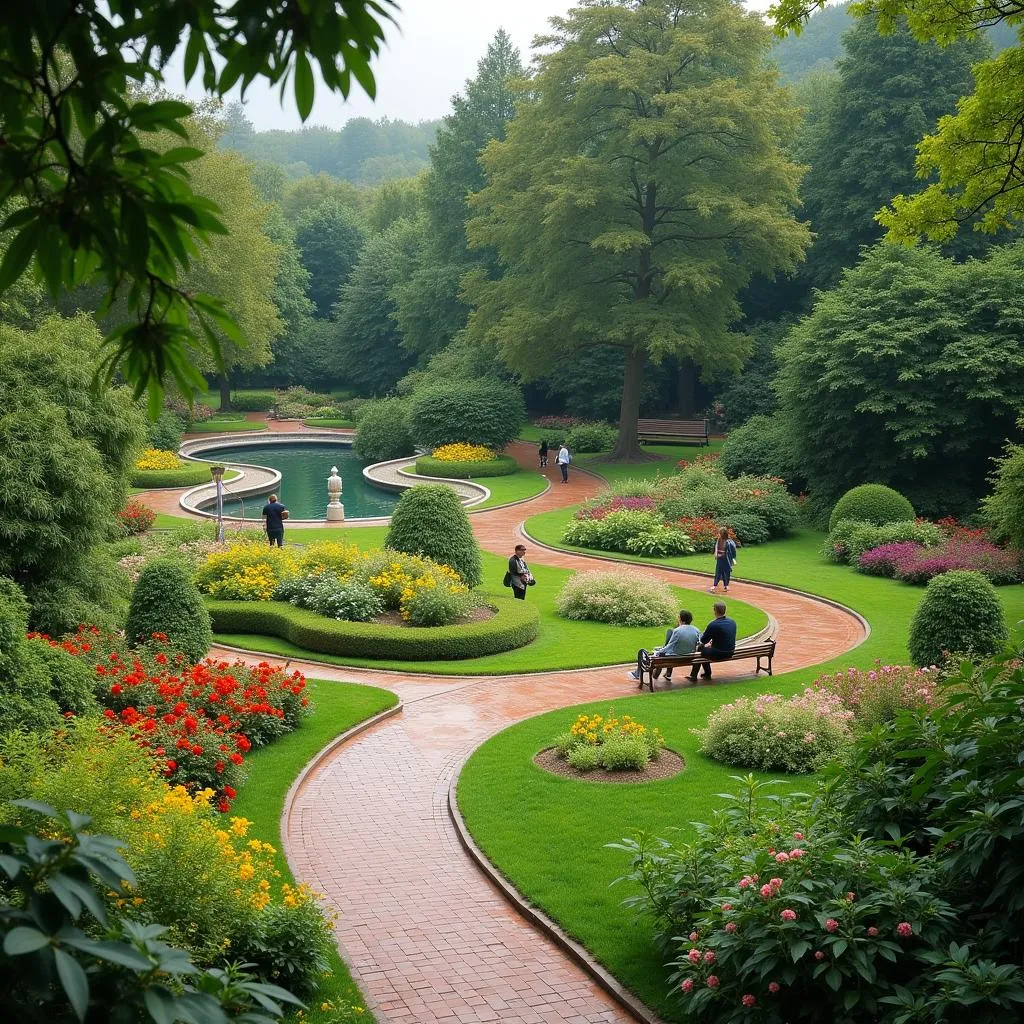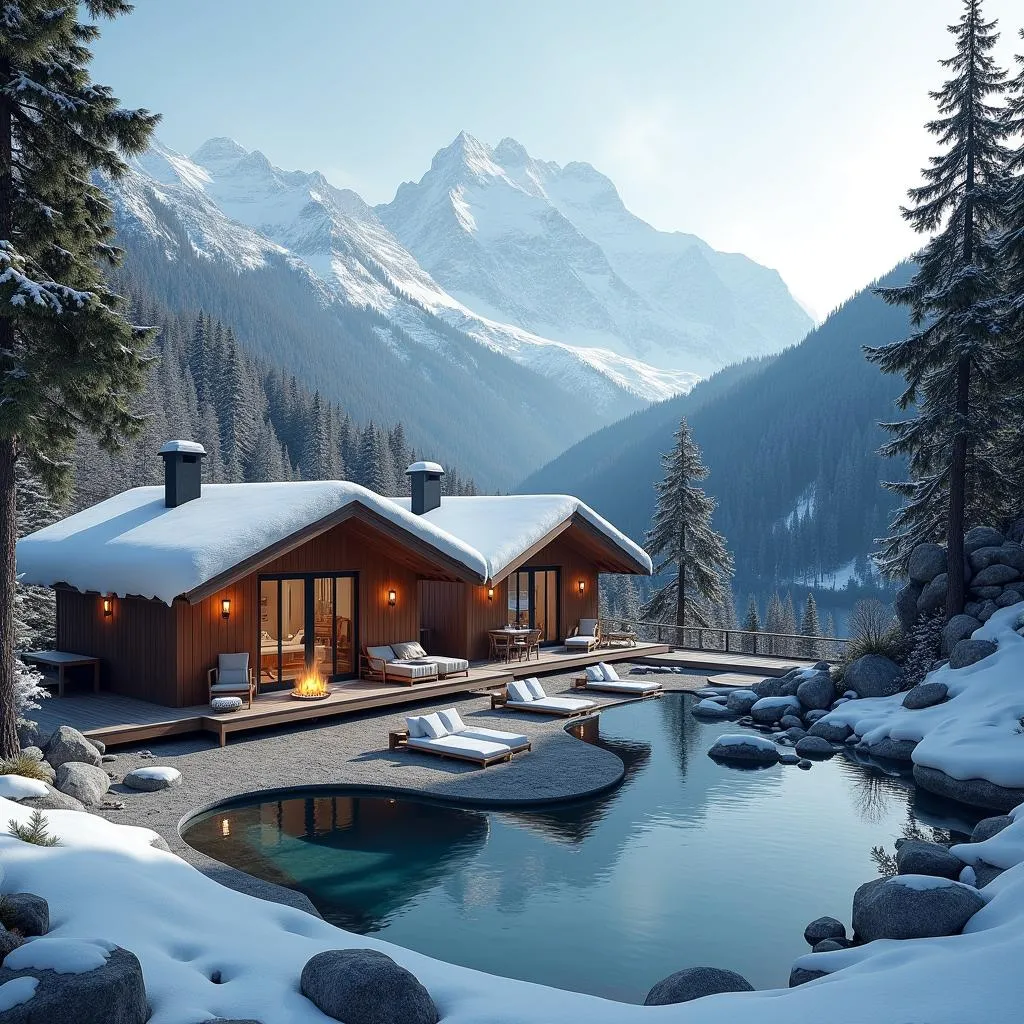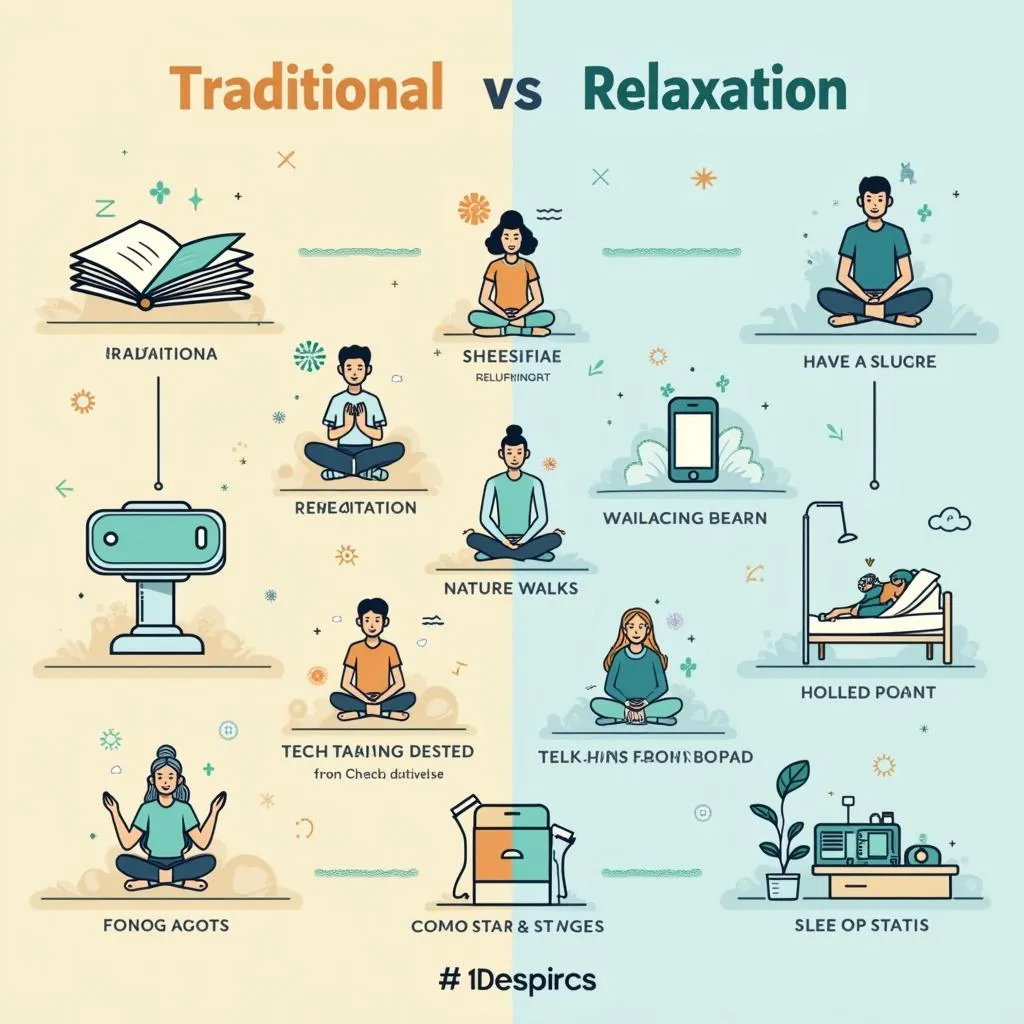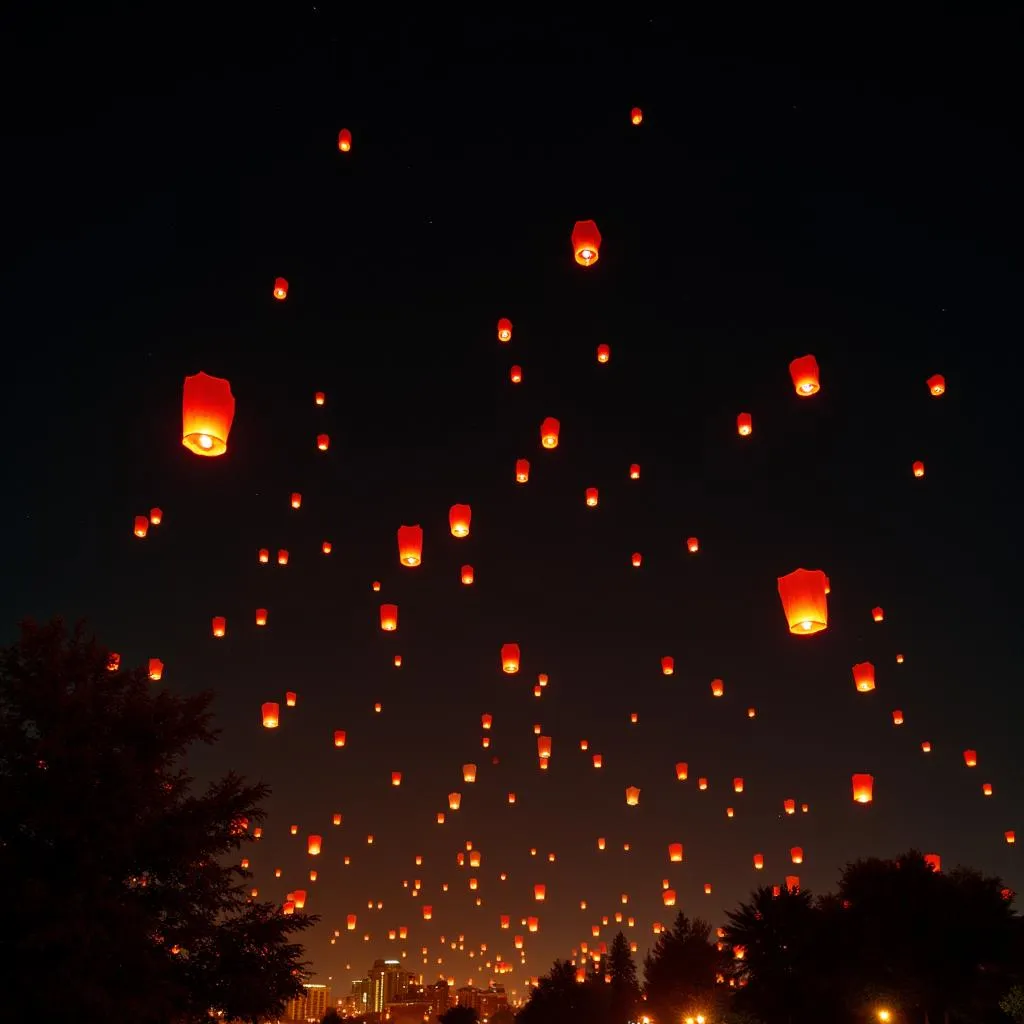The IELTS Speaking test often includes questions about places for relaxation, making it crucial for test-takers to be prepared to discuss this topic. This article will guide you through answering questions related to describing a place where you would like to go to relax, a theme that has appeared frequently in past IELTS exams and is likely to continue being relevant in future tests.
Nội dung bài viết
Part 1: Introduction and Interview
In this section, the examiner may ask you general questions about relaxation and places you find relaxing. Here are some common questions and a sample answer:
Q: Do you have a favorite place to relax?
A: Yes, I do. I find the local botanical garden to be incredibly relaxing. It’s a serene oasis in the midst of our busy city, with winding paths, colorful flower beds, and tranquil water features. The combination of natural beauty and peaceful atmosphere really helps me unwind after a stressful day.
 Peaceful botanical garden for relaxation
Peaceful botanical garden for relaxation
Part 2: Long Turn
In this section, you’ll be given a cue card with a topic to speak about for 1-2 minutes. Here’s a sample cue card related to our theme:
Describe a place where you would like to go to relax.
You should say:
- Where it is
- How you would get there
- What you would do there
- And explain why you think it would be relaxingSample Answer (Band 6-7):
I’d like to talk about a beach resort I’ve been dreaming of visiting for relaxation. It’s located on a small island in the Philippines, about a 2-hour flight from Manila, followed by a short boat ride.
To get there, I would first take a flight to the nearest airport, then arrange for a transfer to the island via a speed boat. The journey itself would be part of the adventure and help me transition into a relaxed state of mind.
Once there, I plan to spend my time lounging on the pristine white sand beaches, swimming in the crystal-clear waters, and perhaps trying some water sports like snorkeling or paddleboarding. In the evenings, I’d enjoy watching the sunset while sipping on a refreshing drink at a beachside café.
I believe this place would be incredibly relaxing because of its natural beauty and peaceful atmosphere. The sound of waves, the warm sun, and the laid-back island vibe would help me forget about my daily stresses and truly unwind. Additionally, being surrounded by nature and having the opportunity to engage in enjoyable activities would contribute to a sense of rejuvenation and relaxation.
Sample Answer (Band 8-9):
I’d like to describe an idyllic mountain retreat that I’ve been eyeing as my ultimate relaxation destination. This secluded sanctuary is nestled in the Swiss Alps, offering a perfect blend of natural beauty and luxurious comfort.
The journey to this haven would be an integral part of the relaxation process. I’d embark on a scenic train ride through the picturesque Swiss countryside, followed by a short cable car ascent that would provide breathtaking panoramic views of the surrounding peaks and valleys.
Upon arrival, I envision immersing myself in a variety of rejuvenating activities. I’d start my mornings with invigorating yoga sessions on a terrace overlooking the mountains, followed by mindful nature walks through alpine meadows. The retreat offers world-class spa facilities, where I’d indulge in therapeutic treatments using local, organic products. In the evenings, I’d partake in meditation classes or simply curl up with a good book by a crackling fireplace.
This location epitomizes relaxation for several reasons. Firstly, its remote setting ensures a complete escape from the hustle and bustle of daily life. The crisp mountain air and stunning natural surroundings would provide a refreshing change of scenery, allowing me to reconnect with nature. Moreover, the thoughtfully curated activities cater to both physical and mental well-being, promoting a holistic approach to relaxation. The combination of luxurious amenities and serene environment would create the perfect backdrop for deep relaxation and self-reflection, enabling me to return home feeling thoroughly rejuvenated and balanced.
 Luxurious mountain retreat for ultimate relaxation
Luxurious mountain retreat for ultimate relaxation
Follow-up Questions:
- What activities do you think are most relaxing?
- How important is the location for relaxation?
Sample Answer (Band 6-7):
-
I find that gentle exercises like yoga or tai chi are very relaxing. Also, reading a good book or listening to calming music can be great ways to unwind.
-
Location is quite important for relaxation. A peaceful environment without too much noise or distraction can really help you calm down and de-stress.
Sample Answer (Band 8-9):
-
In my experience, the most profoundly relaxing activities are those that engage both the body and mind. Mindfulness meditation, for instance, allows one to cultivate present-moment awareness and alleviate stress. Additionally, immersive experiences in nature, such as forest bathing or stargazing, can induce a state of tranquil contemplation and foster a sense of connection with the world around us.
-
The significance of location in relaxation cannot be overstated. An optimal environment can serve as a catalyst for mental and physical rejuvenation. Ideally, a relaxation spot should offer a harmonious blend of natural beauty, peace, and amenities that cater to one’s personal preferences for unwinding. The right location can expedite the process of detaching from daily stressors and facilitate a more profound relaxation experience.
Part 3: Two-way Discussion
In this section, the examiner will ask more abstract questions related to the topic. Here are some possible questions and sample answers:
Q: How do you think the concept of relaxation differs across cultures?
A (Band 6-7): I think relaxation can be quite different in various cultures. In some countries, people might prefer active relaxation like sports or socializing, while in others, quiet activities like meditation are more popular. It often depends on the lifestyle and values of each culture.
A (Band 8-9): The concept of relaxation undoubtedly varies significantly across cultures, reflecting diverse societal values and historical contexts. In many Western cultures, relaxation often revolves around individual pursuits and the notion of “me time,” such as spa treatments or solo vacations. Conversely, Eastern cultures might place greater emphasis on collective relaxation experiences, such as communal bathing in Japanese onsens or group tai chi practices in China. Moreover, the pace and intensity of relaxation activities can differ; some cultures value high-energy decompression through sports or social gatherings, while others prioritize meditative practices and introspective activities. These cultural nuances in relaxation practices are deeply intertwined with broader societal attitudes towards work-life balance, personal space, and the role of community in individual well-being.
Q: Do you think technology has changed the way people relax?
A (Band 6-7): Yes, I believe technology has definitely changed how we relax. Many people now use smartphones or tablets to watch movies or play games for relaxation. However, this can sometimes be less effective than traditional methods because of the constant notifications and potential for distraction.
A (Band 8-9): Technology has undeniably revolutionized the landscape of relaxation, offering both innovative avenues for unwinding and potential pitfalls. On one hand, it has democratized access to relaxation tools, with meditation apps, virtual reality experiences, and online yoga classes providing convenient ways to de-stress. The rise of wearable devices that track sleep patterns and stress levels has also enhanced our ability to monitor and manage our well-being. Conversely, the ubiquity of digital devices has created a double-edged sword; while they offer relaxation options, they can also lead to a state of constant connectivity that paradoxically increases stress. The phenomenon of “digital detox” retreats underscores this tension, highlighting a growing recognition of the need to periodically disconnect from technology to achieve genuine relaxation. Ultimately, the key lies in striking a balance, leveraging technology’s benefits for relaxation while being mindful of its potential to undermine our ability to truly unwind.
 Technology's impact on relaxation methods
Technology's impact on relaxation methods
Key Vocabulary and Phrases for High Scores
To elevate your speaking performance, incorporate these sophisticated words and phrases:
-
Idyllic /aɪˈdɪlɪk/ (adjective): extremely pleasant, peaceful, or picturesque
Example: The idyllic countryside provided the perfect backdrop for relaxation. -
Rejuvenate /rɪˈdʒuːvəneɪt/ (verb): to give new energy or vigor to; revitalize
Example: A weekend at the spa helped rejuvenate my tired body and mind. -
Tranquility /træŋˈkwɪləti/ (noun): the quality or state of being calm
Example: The tranquility of the mountain retreat was exactly what I needed. -
Unwind /ʌnˈwaɪnd/ (verb): to relax after a period of work or tension
Example: After a stressful week, I like to unwind by taking long walks in nature. -
Serene /səˈriːn/ (adjective): calm, peaceful, and untroubled
Example: The serene atmosphere of the botanical garden instantly calmed my nerves. -
Pristine /ˈprɪstiːn/ (adjective): in its original condition; unspoiled
Example: The pristine beaches of the island were perfect for relaxation. -
Revitalize /ˌriːˈvaɪtəlaɪz/ (verb): to give new life or vigor to
Example: The mountain air seemed to revitalize both my body and spirit. -
Sanctuary /ˈsæŋktʃueri/ (noun): a place of refuge or safety
Example: The spa became my sanctuary, a place where I could escape from daily stresses.
Examiner’s Advice
To excel in the IELTS Speaking test when discussing relaxation spots:
-
Develop a diverse vocabulary related to relaxation and travel. This will allow you to express your ideas more precisely and impressively.
-
Practice describing places in detail, focusing on sensory experiences (sights, sounds, smells) to make your descriptions vivid and engaging.
-
Prepare personal anecdotes about relaxation experiences. These can add authenticity and depth to your responses.
-
Work on your fluency by regularly discussing relaxation topics with friends or language exchange partners.
-
Stay informed about different relaxation practices from various cultures to demonstrate a broad understanding of the topic.
-
Use a variety of grammatical structures, including complex sentences, to showcase your language proficiency.
-
Practice linking your ideas smoothly using appropriate transition words and phrases.
By incorporating these strategies and expanding your vocabulary, you’ll be well-prepared to discuss relaxation spots confidently in your IELTS Speaking test. Remember, the key is to sound natural and engage in a genuine conversation with the examiner.
For more practice on describing places, you might find it helpful to describe a scenic spot in your country where you feel relaxed or describe a garden or park in your neighborhood. These exercises can further enhance your ability to articulate your thoughts about relaxing environments.


